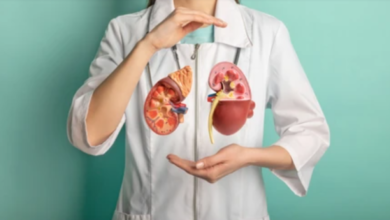Tips on diet, exercise, and lifestyle to reduce the risk of breast cancer
18/10/2024

Reducing the risk of breast cancer involves a holistic approach, combining diet, exercise, and lifestyle habits. Here are some actionable tips:
1. Healthy Diet Choices
- Eat a plant-based diet: Incorporate a variety of fruits, vegetables, and whole grains. Leafy greens, berries, and cruciferous vegetables like broccoli and kale are high in antioxidants, which may help protect against cancer.
- Choose lean proteins: Opt for fish, chicken, and plant-based proteins (such as lentils and beans) over red meat. Some studies suggest that a high intake of red and processed meats can increase breast cancer risk.
- Healthy fats: Include sources of omega-3 fatty acids like salmon, flaxseeds, and walnuts. These fats may have anti-inflammatory properties that protect cells.
- Limit alcohol: Even small amounts of alcohol can increase the risk of breast cancer. It’s recommended to limit intake to one drink per day or avoid it altogether.
- Maintain a healthy weight: Obesity, especially after menopause, increases breast cancer risk. Focus on portion control and avoid high-calorie, low-nutrient foods.
2. Exercise for Prevention
- Engage in regular physical activity: Aim for at least 150 minutes of moderate-intensity exercise or 75 minutes of vigorous-intensity exercise each week. This can include activities like brisk walking, cycling, swimming, or aerobics.
- Strength training: Incorporate strength exercises like weightlifting or resistance bands twice a week. Building muscle can improve metabolism and help maintain a healthy weight.
- Stay active throughout the day: Even if you exercise regularly, sedentary behavior (like sitting for long periods) can increase cancer risk. Try to stand, walk, or stretch every 30 minutes.
3. Lifestyle Habits for Lowering Risk
- Avoid smoking: Smoking is linked to many types of cancer, including breast cancer. Quitting smoking can improve overall health and lower cancer risk.
- Breastfeeding: If possible, breastfeeding for several months may reduce the risk of breast cancer.
- Manage stress: Chronic stress can weaken the immune system. Techniques such as yoga, meditation, and deep breathing can help manage stress levels.
- Get regular screenings: Early detection through mammograms and self-exams is crucial. Women should follow recommended guidelines for breast cancer screenings based on their age and risk factors.
- Limit exposure to environmental toxins: Be mindful of chemicals in household products, cosmetics, and food packaging that may contain hormone-disrupting substances like BPA and phthalates.
4. Maintain Hormonal Balance
- Be cautious with hormone replacement therapy (HRT): Long-term use of combined hormone therapy can increase the risk of breast cancer. Discuss alternatives with your doctor.
- Support your body’s detoxification: Help your body eliminate excess estrogen by eating fiber-rich foods, drinking plenty of water, and exercising regularly.
Adopting these diet, exercise, and lifestyle habits can help lower the risk of breast cancer and improve overall well-being. Regular checkups and a proactive approach to health are key components of prevention.
18/10/2024











